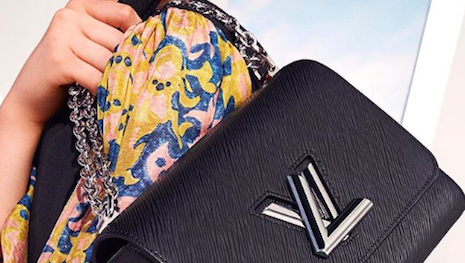Digital video is proving to maintain its status as a prolific tool in modern marketing, with more than half of the brands designated as “geniuses” in Garter L2’s Digital IQ scoring also ranked as the top performers on YouTube.
Garter L2’s report has designated 57 of the 1,872 researched brands as digital geniuses, labeled as leaders in digital media, product innovation and organizational structure, with many exhibiting similar characteristics. In addition to prowess in mobile video, these leaders showed an ability to adapt to the changing media landscape and excel in new platforms.
“The 57 brands designated as genius across L2’s Digital IQ Index in 2018 have incrementally improved their overall
digital performance over time,” said Jake Matthews, director of CPG Research at Garter L2. “This year, genius brands ranked within the top 10th percentile across all four primary dimensions — digital marketing, site, mobile and social media.
“Genius brands have always outperformed in the area of digital marketing, which includes Google search, display advertising and email performance,” he said. “While digital
marketing has long been an area of expertise, social media represents the area of fastest growth between 2017 and 2018.”
Digital genius
Brands within the ranking who were able to leverage Instagram showed significant intelligence in digital marketing.
These marketers also followed consumer-first indicators in digital to better anticipate their product needs and supply chain strategies.

L2 named Louis Vuitton as a genius brand. Image credit: Louis Vuitton
Business silos have proven to be the enemy of a contemporary brand, prohibiting its ability to think like the consumer does – in an omnichannel mindset. To the consumer, no matter if he or she is interacting with the brand on desktop, in stores or via an application, he or she still sees it all as one brand.
Marketers who were able to centralize their businesses and set new goals, unlike the outdated marketing models of the past, saw significant digital growth.
Acquisitions are becoming more commonplace with today’s brands, but it is the execution that has allowed certain marketers to be labeled as L2’s geniuses. Those that are able to transfer knowledge and competency between acquirer to acquired, and vice versa, saw success.
These brands also focused on tangible metrics to determine their true digital health.
Brand examples
Gucci, Louis Vuitton, Sephora, Lancôme, Four Seasons, Cartier and Tiffany & Co. were a few of the luxury brands who L2 designated as digital geniuses.
Tiffany & Co. exhibited its digital strength when it updated a classic film for modern times with help from blockbuster talents.
The brand’s spring campaign “Believe in Dreams” remixed the window-shopping scene from “Breakfast at Tiffany’s,” casting actress Elle Fanning as the protagonist. Tiffany’s spot was among the efforts the brand rolled out to fete artistic director Reed Krakoff’s first jewelry designs (see story).
Gucci marked the launch of a new fragrance trio with a special video and podcast series exploring unconventional beauty.
"Growing Pains" is a collaborative video and podcast project between Dazed Beauty and Gucci coinciding with the introduction of Gucci Bloom fragrances. By sharing brand storytelling through both video and audio, Gucci is leveraging more digital tools to reach its audience (see story).
“On social media, geniuses pick and choose platforms on which to place the most effort, prioritizing video,” Mr. Matthews said. “Only a third of genius brands performed within the top 10th percentile of their respective index on Facebook, 40 percent did so on Instagram and 54 percent are in this top-performing tier on YouTube.
“Only
six brands could shine on all three of these social platforms: Walmart, L’Oréal, Gucci, Sephora, Dollar Shave Club
and Tiffany,” he said.
{"ct":"3sSttU2uOFt2rcRXDi3MCJVqw1B9q\/bcLHfRxiEXfUwKR22as3sM2AMQuJnokW+qx5oWQpIlTlx+ziPCxgUzNzNebw8wL9d87PMlwvxRtd9ZuWM67Cyxim4jara8hmeNoCblrbh5heDkoVfTk\/\/Bsl\/4IlDbs28lwsmRWz+eQQrKsgFiSSchTnR2JjZMyXs5C72jccBuq0fLCQpo+dYk4CBQEuAZ9NpyLkcyne08Xy1VTZ871pvRKwp7oDNtjYY5tfqppEuwDUaxI5F828gcwvk9cWIKNSG300\/S1\/QVYohcSgk\/YCN9TPhhQjikIh6kLjnY6Rg3QZkyI3RApudBjkLJMujlAQ85ALXcZCyJIe02A+KnvLVANakmte9q32Q9SvltydAIvXWQVGcbpa8JXvL+gBltQmP4hotFBbY2HF3YGqcP8Wn6jVBzgeyYDdyj7PIv0jSV86pRUqCU2qehsZ9AUgvWdMTyOWzTfQNO3i0QzT5wBGBTkVaiJaeUmzOK4N3Wb4ndTzCQPRhJByV+7h977qJflVvbf7PC9KF5SD6eIzghbkQY3bFvqWtoJTFoiF3DAZxWZNpC2ubnML2p4IoUf1OmKAMg4VVzE2zpdIKMovM2g2SOvJaq8tHj6I5nb95NBMJ2ik6G4MmSx+6TosdQG9sFzToeEMvjiQiq+mdEEQtAZCtm7u1vKI6SN7GHUuJi8bcv4CMyTn+qgO\/1Zgb4yMkfYlFjj1DV2RYT158rls78sIVuz\/5snCCGOWcIWPVBwJeiLtAZC3WKzrVzujqCi4bqr28nKKW\/VfYvOyyXf\/\/K8WsYpcJxnsqIWyd43KpyaT\/sATgzd7TrAXF1nlBtu5DOZanAQcxhSzsU4oBlM8t8GCA3cMc9jT\/fuVip05GBLhi3v0kBp7NmQN1GR6P9+FqvcVCMOvq\/CFnz6MwzZohza11TBuQJp+Q4zrA9yo1gZIiyv7hkxmbVbhQDaKq3Pu9Y4685c7Uym6bqJkW7ezHEB01k5Aew+EuqZUpJJ\/X8\/1uLlnWue4H93D7rD4V73WTDex4LnjWNkO+3EPS\/GbtxSzQpYbP2pG\/J1RQcyoS5pCRiPqA6u4uYeKIbsyzlarnfpqfR0GqaEaBRX4SPLLkUIHYWcMlO1UKLuhbILJjax9+ZPPLqYvVzuFhyWeUXKOT+Y8KHT8OObjQ3bYlis7d6zBxY5oYKHJcnl7WMjJT6UeDpcF\/9iUWvR\/eW9L8463WmAOiit8dB8M+S5CVGVocbGrECkuC5DwepMHHOV\/7JmlPBf\/o+TpgbvS8bRAk3QNMmAMKvhHuTqwxs05xBwv1HIvne8NUe+vUI2E7\/EBuJ6zt7d8A9uX2cjOAz23CrWE3fCqN0Kt7ExLxpb2PM7BPyeo9eEXKGeUgDpFnRbB\/ZXhDl38j7Hnb9bRDNfgZQ8c0l1llO\/24WUT\/efeTz4RCa4EXhvtuK\/e1oUdhZlWZN3PY8OLCa0CKKK7zQD1GJaaaNCnRXH\/CmYcvN+ilkSVxMVd6U04j1amR1iWMNBZhTDvX4AHxPNEeCvdCIuKtnShkuykR5Bdp7suqlnE4izitE78bZN2tA2gDbDZw2e4G1wRzwhOHmAr9riQwjC4WRxQTipHUcy9j54rvaZbuvIV9sKQR\/zh6zwpLWOu2aYt8Jmf9UeO7j2WZ+4FOuo3M2IhnIg5xgX7wMGCLg3L0wBhkPqjt1EVQewQ5wOaAEgzgI+5mmY1Ut6MgWDiZ0O+rlClWX5dO4B0MIbY+1IRR+1xDEwmQ\/hPtipyM6XtdvU171J931oF1wae4Fa54oNpB2nyoNOfLlE2t0X824nfjyRprXN\/\/mcK\/oIsYmh9t8i6W1WkofmSEBtGNGmBkzarP1vbQ9lW5\/qHTrqBMZ\/+mTTbDcZMMDZll6UuiwyTsi9Xo+dm5pG+SeJr5v+NnTPR4dy4gb\/eDNxfrAO9fCriAvQl0wmJ6odOK5513nuJdb+x4I+TW3l8NFPtwHnFN8OayIKlMrn9MwbJ557pY8GChhHzF6gqnVh8Cn5I7zuIT3\/zO8yKoVJm\/EVRDaOmNccfxcok8YxwCk4FYJbPsd2SriGyXYo\/1TEwR+D\/PjEsHUPbe+w8U1cuqywmRD\/MS\/TRNLFwS2vU\/+jeqr1ND\/rYVv+00ktttJ3WIypz1CTwC2ajcs9gt0Td9ImauuX8SXSu7Cj9bRfQwK9xpFLrfd86QkW81mt21YNUE\/MMUjLQ5wzfXNqLq0lPY\/u58zjlR1w\/Do7OQTqLbX1oIBDq2GL9q2ve5nsVJ6k0EFZmiyzVjFf5qb2+PGltKQxCbaMyiGmkONnU0tIsw5v4RTf7yt\/aDyGNcQLgXuHzomYwLD39S0AEjycQR2AYRPT0diV7XPEBfcDyGBw+Rk1B78qXZJNo2Kt0tis4H5gsoFevzBeU0N38cO4fv3fyHDhI44YXx+fO1ERPeud3k9IB0OjDu5ZXs9e8asy0QkPMQGY9ZoQrHGFFNmeNfbmq5sA0W6fADD3sLusY9IIcSAZxDRRD3GU9xOHxcpuXDidXNvom35euXo0fTFj2TH\/1ED67WLYu3WIybK8j8bZrzqsemhGJ3ZgYEH2jicZ9YMWtbzU0Vg7vwUThoU8Y0MlX+LuDBR2Wq7eRyB2XcPvNQYNVLTgHq+jPn2V1mzt1OUiHzosOLl0YVj9L97u4yKEN+Le86\/oVf9dxCTKkVxGDxlDWJTeAWFyPAuSTbHcEG57Y2wDodB+0V8OFfNtd4277FjvArkOyXlqA6CY4Ee9W86KYeqloLVYC2EH59t+U6Cef9ktf3oMnQy70Jy8fF9XVrA3s9ryyYUsX3hNsSttvvlB9THJRPLFV7NvA4103rvTdHyUACuGoqxT2iThSRBfAUqAExfaGeTYQblc+k+3417U4vWEUEBCYde3vAc0gSpKHEGI+ZK3sCcqZSCxyFReLItgptqo1qx\/BvTS361teXr9xXyo+m0lVg2\/kCUCGwHKT3iiU+Q7jkyGLnBYtPz+erOOHVtDf6iKCvhOkXsVGyVfO72lsVAoz56HXnOGswZEbEdkN+Bearnpnkc9xVApp+VpxVInVL4JvQDr8U\/mUz9VmH214i1bqnZ+0NA2u5Fk7s+n\/TvZCJ83KVkkv5KbgfeCjBdFYQ927r1iW2oyboBCRvqxJAtEuWl+UX4P70jBEYGYsnU4++x\/DRdp4mfjf+HO6UP\/itAuW5iUawHFT61BlFA9o7\/OLdCfpLy\/rRvTUt2c96gLzR1H4QbApzI5yIF3e2omEORcucpvXenmxd+pFvfRm7rxsqRuwMiuMPZ4\/hIPcBV6zOeLCHjIFQ8o\/ZbwJECAaZmlihJAvoyJLR+qrLDe3q9JR7dUlavJadEtfNWsB\/lBlQ\/+Teeh4srTwz8TB8Ku0xj5GjUfFRBJGuslFhWfmEGQ4nhDXtMSOxBVdNCTlfvc4YnGyUN2FLkgbsRwGdCkHFPVinfNKBpqI8WpW\/tMEGrkxkc9RGqdBcG2ATLYRF2OWJ0MZv3KVJbdufECXEMXtCaAtNlR\/rJVrjjjx7QrcnFGRfnRy6lgYdaeSa7VVK1viqmXsXjikfhseGuhThiKzrVWb12Zhkx0XrD9OXMx\/foM2o4Go\/1p2UyieltqeknBq1mKw3DIxaynesiy+WmzADTuCf2dj3iUOSVqEKCxUyANV6IsrV\/54yM0aVDrFcgxc\/U9awa6otG3++ANzkXJ6OXzB+fuWqax+owRHICF\/eLCDQdcg3O8CT5WVVc\/ensFUUT0RQFj9szzoFi+0z7K9MD7eqsQB+AfvGTo7Bet\/tUjQ5THpWBY2tigsDwbh1SlC63NPW\/beAI3UZvVcWSaWtChiF0FRKav\/vvGqubxY\/lFNmjdO+gIGMXNoHt33xpn7FHkBhWGnS9kIV6alMHJEYuPqoDdzh6Ppccrz+lEM0SRzaY90e8JredVbhuBWJS2sGo6J1FxoWzqXm7sXRszPgurip9FF5\/pDDaVnnHzchGFVuGsPvVOwLjtKO1ADPvNdNYNmxU6A0ajT0wwNFxi7VJu1qVm2Q6Xpx0bIqu2jLMJ9K7HAfe6RIORQD+dG\/3\/SuI6OdwRlC1S2gZbqKYr\/jaM7SwSAuFNuqWxWzFpT2lBRRkOZbUnzu1qEPUF6kyEdgrCA2gvmJtYc44hUsvXvoJZtaoPK+FhykcsD+SwQkXqiDLrN3K9kqDyxQQ+FWZZSIF2hAOJP47wvoL9MceBNdxbEeXJKC1IPAacpu601VYJVNtOb\/DogusaAvrPbBetouW8lpK+hzwjTcA\/bjXm6nTDwJZfCrewAqYubReHQyR0M789RQzbD2y2xvYR7rromcZjW\/MLWY5fWY6scbbbn8TafCEVxwr9k6iRQqoX052+PAnzkyAdM4jPg6bp3fBAzdi3euGZ56Ry+hWmQBuiKZDnPqvGdM+snGuRblnKkXkBSImuIvmIBmErwdJGqLSoT3Gu6ZJf6OQLT0qa5Ubl\/WerzokwbRHy36mfTtMIPDJc3dnChrSSIXjFm4iEOL+Bw5k8+KFJ\/lUnNcvlG7MIETZbjCHHkHWR3yNDXeaoganRDr3rtyw6uD9p8AOJ\/ZaFBedTVU2GqJzH9jhaSv61++\/x+x14\/sfbbKAIwiM+5soyZpesQVzTWn3+UbCkEOLC1RNr98CS3SQXKNhaosjz4IRILgNfpFS3m1+b007Gfo3cp9ZDu+p+K1dN7ONb4+YGm2E+BhfXK0du8J51uw9kU\/tpjSj4Jr30DVn0g8TLtvAkt8gxX44dGKOFBoJwcZGKdeTTNEW6Ap2Nn1riB1MMduSSaUGO74w\/vHBMrKQBTHz0Fr0gaIpr1XuwmlbSrs0OpcSKfQeIk3FjyK+vrNY8ag1MRXzhIQATweWFaAUtZaxpEn0u88DFR4htxDZ6YokkWWmqbe5qirc\/8g+lWiITpIjjSI1rOfAkYW4TcrwGm+P65ybKgoWbv8yL1IpDzSr3is1y53h0Qdsfc0pJplfMYaSbM6zym5q3qnVc9egISHXu9YNx0EDEANUMLU\/hff0P\/xSIXzY5eeXWDzP6mToAnzt2RP9V1oG2yWTIS8p8f5i15+zdAOZpt7b4w4oRcQxoJv69CoXPI+oCrdwi1eY1tlJQMVvFgPOeQe1ZmwgxjCSTO\/KMWpnG0ejalzEnvmic5eZN6ys\/Sj39iGvmmSR57XDtjfpG0vf1EFph+Gx44Ud1sE2teiCHL7GQihjeIS7l7KV0\/kVoCel2YgIVtbYK\/6pZtQR5EaGbtQdijyaFXlxg\/5ijta5pfFKILRdKjqfYNdGznrD6aT9GOtGrHb3NjgI3Cm1dT23Erv1eEod1DkvHzlo6\/kuvSs\/JZm1sY0BmEIlXj\/7qrs\/w2i0bY0ly32CERQiAW0KnaBf0TwzKS9Qu8kznRvV7LYFXsSfzp\/qBnK8PFg8FAIZaIyZfeot97W6Jv90tycrGTykR9xf33BnfwUar+v4JUC1e+HFlcA7eURUV8hjuZnNHDfj5AjDNUdEawsXi4edTfvBbKmJf967Wij82uTZ\/pzW6KNrzsPT7Mt8GwdcI32TEG+zB80NyLDBWosBCyZkZsnZFo+ec8hWGq0hnzhR8l5kfVvjrcydxSpGWhne98qC2po9Pb8MrkkOM81yBLg7H8D5M6pAAim+kLmv1XuelBopQkioOO3JmuWZaRNc\/biDktdv0y2+LEMZNNG5tbjt5zimX5t47cmIVoTldHtpQ45Ht7iYRc\/WjfZSXQaJV2yAvJOlYvklvEwFHwQpwP9SO4BCd\/pWOKwPjNx2SU9\/HfAd9GoGSR1ZgrmswCR91d7wgl9B7McRXWkdEpwtKPEAroatbfmCKtb6RkaFPGnAjeLoIJFfQ21sPR06CM4lzP4Q\/TPmV4l6hv5yFZgqtO434CuSj2o4Z6TcTmyzrv6fkvXKYkt6whiewPriDkPN5Qs0tnFHYWDKlH\/fVXM5Eg8u1fZG4AVH5RtLPbY1Otx8aXP9OxUS26PWQX3kQnOKYHSUq8yqTepfWMNj6A8bnPBxq8qQBmXxsPrLc90xJZxlRVc+HBEsdMkEdk1sTmDl2tTX0wkAbI9mEElW5GtwhXIxweuVw5oNYGnVs\/hYt4SCZF+Satqe5mJo+hRb+U3BulKSIZS0T3B9Jwt7cCakY4T7xSlR9SA7w69j22aih9mbPzvGSupxAckv88adX7F4HYv8Fr\/wDOeMtUzCpLwQhPHJNaA55Ul4qic7ghG72mIUnbG2olhO2GVF9OrpPJTBxNyRSl3uOyIcqTwZdxk3U9jgjiwnY+PBMSZFdmKnFEhZDATUpBPVDlc9IIKZGPKsgTjXA2r3kg6YpTR1bbCmUqhVRz0ujf7tT9gEtd78Irf4cMNoSmZJZH\/UUB9lz4IEwaFJ\/OQGl6GoG308jvWtoX9IVBd7QyOQx+TFlhMDeJbfuWyQaceMOW3fGOWMKjd1peH0e6X9zAuh0KxY5cZS9uQTYholbaR0X1dT4Y4N70tDv1biBa8AaYJCpXo1kU0SoQC+ha0IIcT5qxbRF7KdV9VypeKvrT+FUEiAf+NINfTpVWYH3o6uC\/Fc+0tHv1iFAalYanmfDoq4k0JGj4JH7GN7Jja9rmBP4wVKBV0P8+5LahR0iH76U8m9DPDQ","iv":"bad0d597c5c88a25ee2ca65327263b52","s":"a6e7db00ac7e30ef"}

 Artsy x Gucci's video series. Image credit: Artsy
Artsy x Gucci's video series. Image credit: Artsy